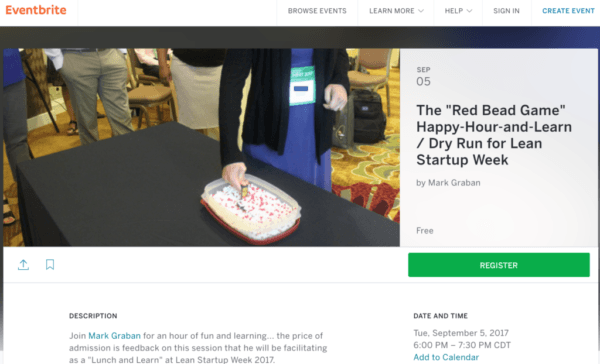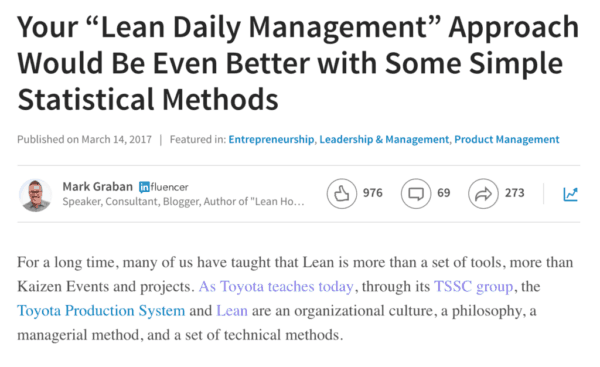This year, I have the opportunity to run the W. Edwards Deming “Red Bead Experiment” at Lean Startup Week in San Francisco, with the main days being held on November 2 and 3.
Come help me do a “dry run” of that lunch-and-learn session in Austin, the evening of September 5 (yes, it's a happy-hour-and-learn, not a lunch):
I need a group of at least 10 participants to help dry run this AND give feedback from the perspective of people from startups or software companies. It's free… but please only register if you can definitely make it. No shows will throw a wrench in the dry-running works.
At Lean Startup Week, I will also be giving a short talk on the main stage about lessons from the Red Bead Experiment that apply to startups and their performance measures.
I've facilitated the Red Bead experiment many times, but typically for a healthcare audience. I'm excited to have the opportunity to do this for a “Lean Startup” crowd, which will probably include more people from larger companies, given the spread of these methods into larger companies, as detailed in Eric Ries's upcoming book The Startup Way. It's an excellent book, based on the preview copy I received.
In my experience with KaiNexus, the team there has been just as susceptible to the problem of overreacting to noise in performance data. Every system has noise… we have to cut through that noise to see the “signal” in the data, as I wrote about here:
I also, of course, recommend the book Understanding Variation by Don Wheeler.
If we overreact to every up and down in a data set (such as the number of “marketing qualified leads” we have each week), we end up wasting time looking for causes and explanations that aren't really there.
The normal variation in a performance measure is due to “common causes” in the system. Instead of asking, “what went wrong last week?”, we need to ask, “how can we improve the system?”
The Red Bead Experiment is a great way of learning these principles. Come join me if you're in Austin or nearby.
Please scroll down (or click) to post a comment. Connect with me on LinkedIn.
Let’s work together to build a culture of continuous improvement and psychological safety. If you're a leader looking to create lasting change—not just projects—I help organizations:
- Engage people at all levels in sustainable improvement
- Shift from fear of mistakes to learning from them
- Apply Lean thinking in practical, people-centered ways
Interested in coaching or a keynote talk? Let’s start a conversation.











